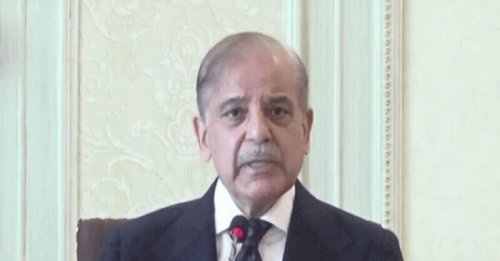NICOSIA: As Syria's conflict spirals to vicious new depths, Iran is doubling down on its support for Damascus out of fear of losing its main pillar of regional influence, analysts said.
The backing reflects Tehran and Damascus's shared anti-West, anti-Israel position and mutual succor as each weathers international sanctions and attempts to isolate them.
Tehran's aid to President Bashar al-Assad's regime probably goes well beyond the diplomatic and humanitarian support it has publicized to also include covert military assistance, the analysts said.
Assad is dependant for his survival on Iran, which in turn fears he could be replaced by radical Sunnis who are hostile to Tehran's Shia rulers and may cut Iran's links to Hamas and Hezbollah.
“Assad's Syria is the gateway for Iranian influence in the Arab world and the Levant,” said Ali reza Nader of the US-based think-tank Rand Corporation.
A regime collapse could deal “a large blow to Iranian interests in the Middle East,” he said.
Iran's rivals among the Gulf Arab states, “especially Saudi Arabia, realize that Syria is a weak link in Iran's regional influence. Hence they are eager to see Assad go and be replaced by a Sunni-dominated regime,” he said.
A Western diplomat agreed.
“Shia Iran perhaps rightly is concerned about what would happen if a pro-Iranian Alawite regime were replaced by one that came to be dominated by the (Sunni) Muslim Brotherhood,” the diplomat said on condition of anonymity.
However observers said Iran could be open to a scenario of Assad being replaced as long as his regime survived and his successor kept the ties to Tehran.
“I believe that Iran does not back Assad as much as it backs the political regime in Syria, though there are very strong ties between the Assad family and the Islamic revolution which goes back to more than 30 years,” said Mohammad Saleh Sedghian of the Tehran-based Arabic Centre for Iranian Studies.
Iran would deal with a new leader “on condition the new government maintains Syria's constants, which are the backing of Hezbollah, Hamas and Islamic Jihad and opposition to Israel,” he said.
Right now, though, Iran is navigating its way through what increasingly resembles a civil war in Syria, fueled by outside forces.
“The conflict in Syria certainly appears to be getting more brutal and not just on one side,” the Western diplomat said.
“There is a real risk of it sliding into a proxy war as certain states support the regime or 'the opposition',” the diplomat warned.
Iran accuses Qatar, Saudi Arabia and the United States of funneling weapons and fighters into Syria to battle Assad's forces.
Russian Foreign Minister Sergei Lavrov, on a visit to Tehran on Wednesday, was initially quoted by reporters, including Iranian media, alleging that Washington was arming the Syrian rebels.
The United States, Lavrov said, “is providing arms to the Syrian opposition which are being used against the Syrian government.”But Moscow later said Lavrov's statement was mistranslated and he had only said that Washington was supplying arms “in the region.”Russian news agencies offered a different version of Lavrov's comments.
“We do not supply neither to Syria nor anywhere else things used to fight peaceful civilians, unlike the United States, which regularly supplies such special equipment to this region,” Lavrov was quoted as saying.
“Just recently, one such shipment was made to one of the Persian Gulf nations. But for some reason, the Americans treat this as par for the course,” Russia’s state-run RIA Novosti news agency quoted him as saying.
The White House, meanwhile, denied arming Syria's opposition.
“We do not and have not supplied weapons to the Syrian opposition. You know our position on that and we have made it very clear,” White House spokesman Jay Carney told reporters.
Israeli and US officials in turn say Iran is providing Damascus with arms, military muscle and surveillance technology used for repression.
Dina Esfandiary, an Iran analyst at the London-headquartered International Institute for Strategic Studies, said: “Although the exact extent of Iran's support is unclear, it is highly likely that it goes beyond money, and includes military aid.” She thought a proxy war was unlikely. “But will Iran use it as an opportunity to make life difficult for everyone involved in the region? Yes, absolutely.” Nader noted “Iran has reportedly provided technical and military support to Bashar al-Assad. Iranian Revolutionary Guards officers have even publicly admitted that they have helped battle insurgents in Syria.” Publicly, Iran has said several cargo flights to Syria have been carrying only medical and humanitarian aid.
But Iran's ISNA news agency ran an interview last month with a senior Revolutionary Guards commander, Ismail Ghani, quoting him as saying the Guards' Elite Qods Force was present in Syria.













































Dear visitor, the comments section is undergoing an overhaul and will return soon.